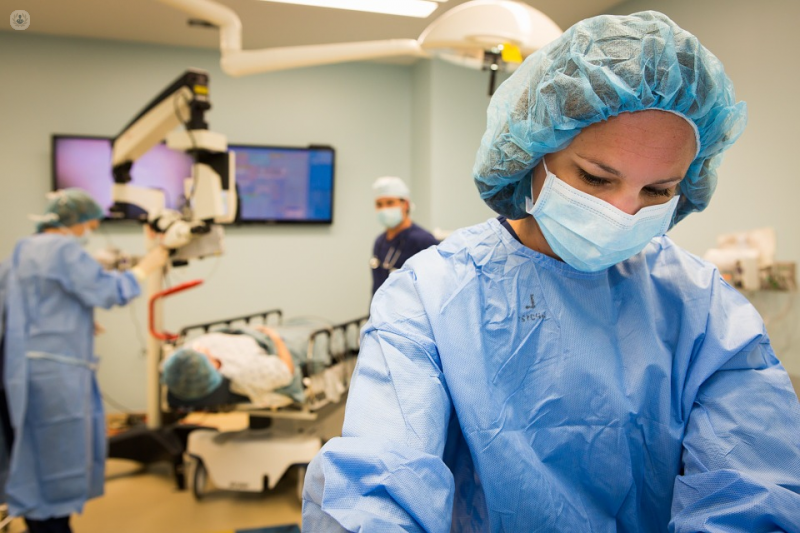Cataract surgery: ask an expert
Written by:Cataracts are a potentially very serious eye condition that slowly diminish our ability to see. More commonly seen in older people, the only solution is surgery. In the second part of our interview with top ophthalmologist Miss Anna Bhan, he explains how cataracts are removed, and what to expect after surgery.

How are cataracts removed?
A cataract is nothing more than our natural crystalline lens that has become opaque, in the vast majority of cases with age. Therefore, it is not a question of just removing it, but a question of removing and replacing it with an artificial plastic lens. Otherwise, our sight will not be good.
The surgical operation is very streamlined, but you still need an experienced surgeon to increase the success rate of the surgery. The operation entails the following:
- A small incision is made in the cornea (which is the clear lens of the eye) to access the crystalline lens i.e. the cataract, which is situated right behind the pupil and the iris.
- The crystalline lens is opened up and the inside is removed and cleaned.
- A new artificial lens is gently folded to be inserted into the eye through a very small incision of just 1.5mm and then the lens, once it is inside the eye, unfolds, opens up and fills up the natural container of the original crystalline lens.
The operation itself, in the hands of a very experienced surgeon, takes just a few minutes and it’s almost always successful.
However, as with any surgery, patients should be aware that there is always a risk to the eyesight, even though this is believed to be well below one in a thousand (i.e. one patient out of every thousand could have an outcome that is far from ideal), whilst the vast majority – 99.9% or more – should have a very good outcome, with highly improved vision after the surgery.
It is worthwhile mentioning that the special femtosecond laser can be used to assist cataract surgery and at Moorfields, we’ve just completed a very large, randomised, clinical trial comparing completely manual surgery to part-laser surgery and we are waiting for the result to see if this really is better or not. At the moment the jury is still out.
What to expect after cataract surgery
Cataract surgery is a quick, usually painless procedure with almost always a good outcome. As such, recovery, in terms of sight, is really quick. Most patients are able to resume normal activities within a couple of days.
Patients should avoid the gym for one week, and swimming and contact sports for one month, but all other activities (cinema, theatre, cooking, etc.) shouldn’t be a problem, provided they follow treatment and the doctor’s advice, and use their common sense.
They will need to use some anti-inflammatory antibiotic drops four times a day to start with, and then a little bit less for the next few months or so.
Counselling for cataract surgery
One thing that is very important, however, is counselling the patient prior to surgery, in terms of explaining the risks, benefits, and the outcomes, and counselling the patient about the type of implant that suits them best.
Some patients will want to see very clearly long-distance and they’re very happy to wear reading glasses, especially older patients. This is accepted as physiological.
Others will take this chance to eliminate the need for glasses almost fully. Therefore, counselling is important, because some of the very modern lenses that can provide near-perfect vision in the vast majority of cases can occasionally cause some side effects and also, may need more visual-neural adaptation. This means that the patient needs to be warned of the possible side effects because if they happen, they could easily be ignored and forgotten. The outcome can be good provided the level of counselling pre-surgery has been good, which is one of the most important things in doing cataract surgery.
In short, after cataract surgery, life goes on exactly the same apart from some common sense precautions.
If you'd like to make an appointment today with Miss Anna Bhan, simply head on over to his Top Doctors profile.


